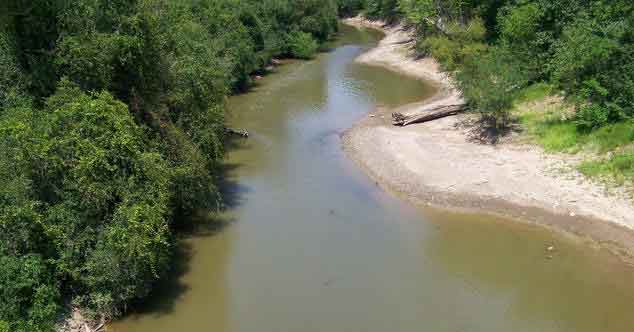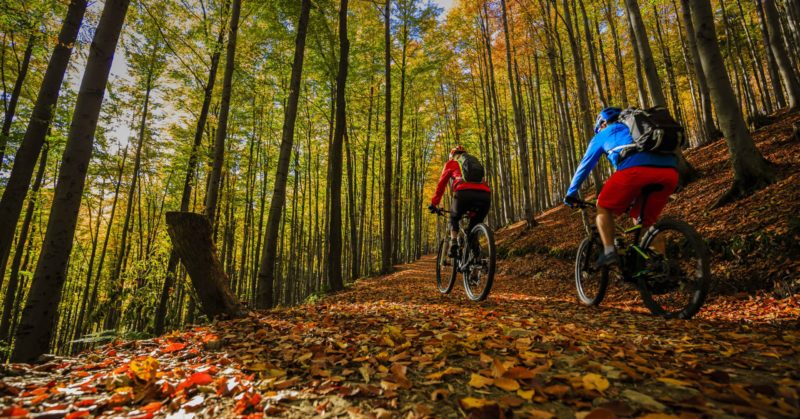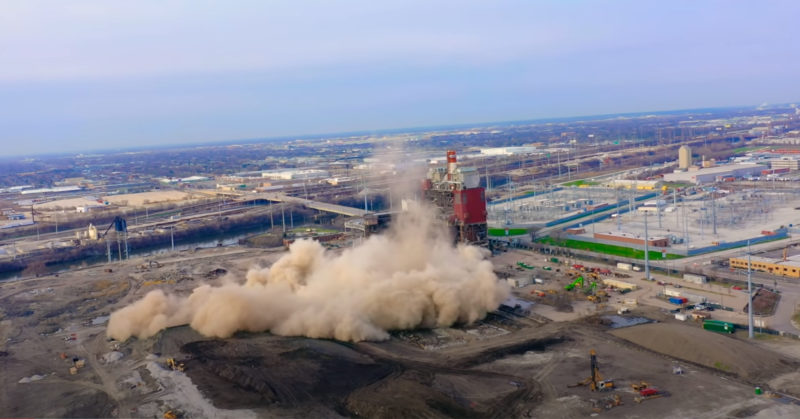There is no shortage of issues PRN works on, from clean water to energy, or agriculture to rivers and wildlife. Here we’ll introduce you to some of the other issues you might not have heard about.
Next Steps Taken in Sugar Camp PFAS Lawsuit
In October 2021, PRN and Sierra Club Illinois (SC) filed a notice of intent to sue Sugar Camp Energy, LLC (Sugar Camp) for water quality violations stemming from the discharge of per- and polyfluoroalkyl substances (PFAS) into waters near its Sugar Camp coal mine in southern Illinois. The PFAS, also known as forever chemicals, were contained in fire fighting foam that was spilled on the surface and injected underground in an unsuccessful attempt to extinguish an underground mine fire. In January, the Illinois Attorney General (AG) Kwame Raoul followed our lead, filing a similar lawsuit against Sugar Camp, alleging the company’s actions violated the Illinois Environmental Protection Act.

In early April, PRN and SC, represented by Great Rivers Environmental Law Center and Albert Ettinger, filed a “Motion to Intervene” in the AG’s lawsuit. Through intervention, we seek to become a plaintiff in the case and assert our specific interests in protecting the ecosystem and recreational resources of nearby water bodies, including the Big Muddy River. Additionally, we seek to add Sugar Camp’s parent companies as additional defendants to the case. The additional defendants that own and control Sugar Camp have only recently come out of bankruptcy and have been directly involved in decisions and actions associated with the case. These companies have a history of fires, pipeline ruptures, and violations of other environmental statutes. Through our intervention in the case and the addition of these defendants, we hope to ensure that the responsible parties are held accountable and responsible for remediating the damage.
Mountain Bikes at Kickapoo
For several months, PRN has been following the proposed construction of approximately 20 miles of mountain bike trails near the Kickapoo State Park with the help of long-time board member Clark Bullard. The area is a parcel of land owned by the Illinois Department of Natural Resources within the Middle Fork Vermilion National Scenic River corridor. There already exists an extensive system of mountain bike trails in the area that are operated and maintained by the Kickapoo Mountain Bike Club. While we support this type of recreation, the latest construction plans would cause irreversible damage to one of the only remaining intact forested ravines along Illinois’ only national scenic river.

PRN has asked IDNR to halt any construction in this parcel for several reasons. First, public input opportunities have been non-existent. To remedy this, we support the Department’s effort to reestablish the Citizens’ Advisory Committee as soon as possible and commit to giving the public a voice in identifying long-term management goals for the area. There have been significant erosion issues on the current trails within the park, representing a lack of proper maintenance and enforcement against users riding on wet trails. We have also seen no effort to consider alternate locations that would minimize impacts to flora, fauna, and other recreational users. Through letters and open conversations with IDNR, the Department has expressed a willingness to pause development, and we will continue to monitor the situation as it moves forward.
Plant Demolition Bill
This year, PRN joined partners across Illinois to support legislation that would protect power plant communities when the facility is slated for demolition. Over the last decade, half of Illinois’ coal-fired power plants have retired, and with the passage of Climate and Equitable Jobs Act, the rest have closure dates on the horizon. However, few regulations exist to protect community members during the demolition of power plant facilities. This lack of protection led to the 2020 disastrous smokestack implosion at Crawford that sent a massive cloud of dust through Little Village.

Our legislation would have opened up the smokestack demolition process to critical transparency and state oversight. However, our efforts this year to support this legislation were unsuccessful. A shortened legislative session, energy legislation fatigue, and other competing legislative priorities mean that power plant communities will have to wait longer for these key protections. The next opportunity for Illinois to step up for power plant communities will come in Veto Session late this Fall.







